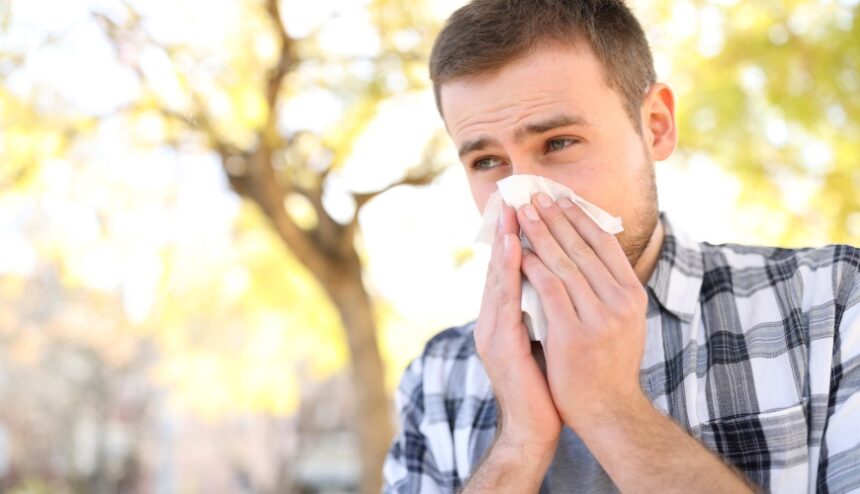
By David E. Polzin, M.D., Family Medicine
Forget the first robin! You know spring has arrived when you begin sneezing, sniffling, and having itchy, watery eyes. Every spring, allergen levels skyrocket and send your immune system into a tailspin. When you breathe in pollens or other airborne allergens, your body’s defense system sees them as foreign invaders.
The most common airborne allergens—dust mites, pollen, mold, and pet dander—can affect you all year, but they’re even more troublesome when winter transitions into spring. Changing weather conditions and increased activity in and around your home create more airflow and stir settled irritants.
Since you can’t live indoors all spring, here are a few tips for managing your symptoms:
- Take an over-the-counter antihistamine every morning. If nasal congestion persists, pair it with a saline nasal rinse or oral decongestant (if you don’t have high blood pressure). Read the medication labels and ask your doctor or pharmacist if you have questions.
- Keep windows and doors at home closed as much as possible—especially on windy days. While this limits fresh air, it may be worth it if you or your family members have stronger symptoms.
- Limit morning outdoor activities. Pollen counts are highest from 5 a.m. to 10 a.m.
- Wash bedding and stuffed toys in hot water to limit dust mites or pet dander.
- Reduce moisture in baths and the kitchen with ventilation fans and dehumidifiers.
- Quit smoking and limit your exposure to secondhand smoke.
- Shower and change clothes after you’ve been outside for a significant amount of time or have been around a fire. Pollen, molds, and smoke collect on your clothes and in your hair. A shower and clean clothes keep you from spreading allergens around your home and lessen the effect on those who have allergies.
- Brush and bathe pets often to reduce dander and unwanted shedding. This also rids them of irritants they may have collected on their fur while outside.
- Dust and vacuum (using a fine filter such as HEPA) frequently. With higher traffic in and out of the house, shedding pets, and open windows, airborne allergens are more likely to enter your home and stick to surfaces such as carpets, curtains, furniture, and linens. If possible, replace carpets with hard floors.
- If symptoms persist and your allergies seem out of control, make an appointment with your primary doctor or allergist. Your sensitivity level to allergens may require prescription medication to manage your symptoms.
Don’t let allergies dampen your enthusiasm for spring—stay consistent with medications and follow the tips listed above. You and your family can enjoy the outdoor activities you love without allergies holding you back. If you need a family medicine doctor to help you manage your allergies, make an appointment at Glacial Ridge.
Keep reading to learn more about improving your indoor air quality.


